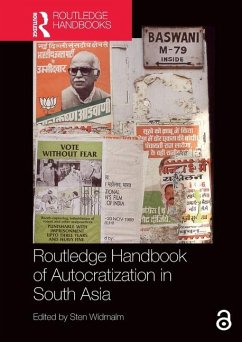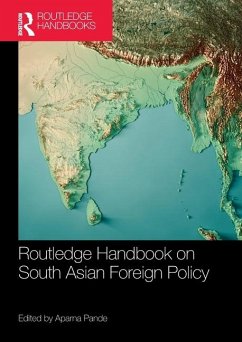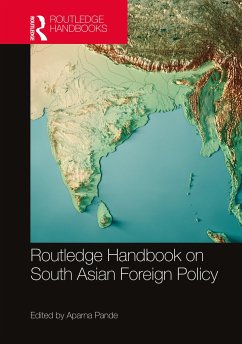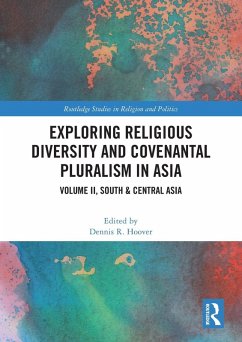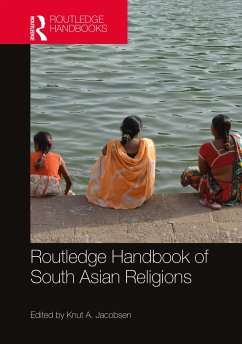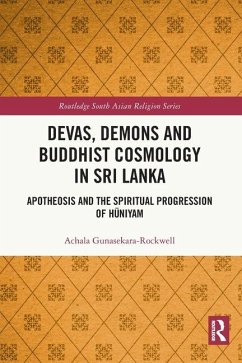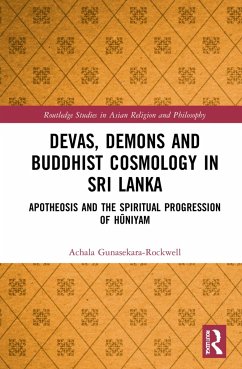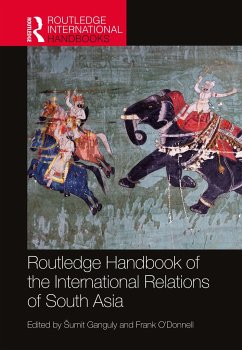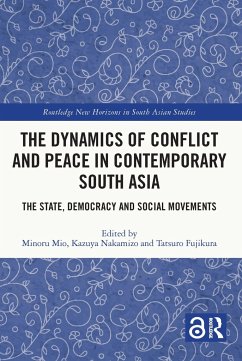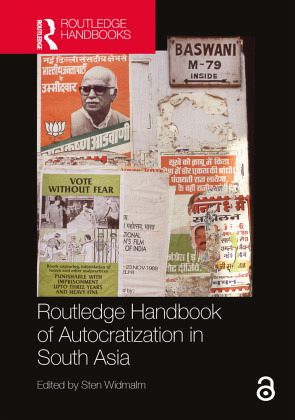
Routledge Handbook of Autocratization in South Asia
Versandkostenfrei!
Versandfertig in 6-10 Tagen
229,99 €
inkl. MwSt.

PAYBACK Punkte
115 °P sammeln!
This handbook offers a comprehensive analysis of the processes and actors contributing to autocratization in South Asia. It provides an enhanced understanding of the interconnectedness of the different states in the region, and how that may be related to autocratization.The book analyzes issues of state power, the support for political parties, questions relating to economic actors and sustainable economic development, the role of civil society, questions of equality and political culture, political mobilization, the role of education and the media, as well as topical issues such as the Covid ...
This handbook offers a comprehensive analysis of the processes and actors contributing to autocratization in South Asia. It provides an enhanced understanding of the interconnectedness of the different states in the region, and how that may be related to autocratization.
The book analyzes issues of state power, the support for political parties, questions relating to economic actors and sustainable economic development, the role of civil society, questions of equality and political culture, political mobilization, the role of education and the media, as well as topical issues such as the Covid pandemic, environmental issues, migration, and military and international security. Structured in five sections, contributions by international experts describe and explain outcomes at the national level in India, Pakistan, Bangladesh and Sri Lanka. The final section analyzes conditions for democracy and autocratization and how they are affected by the interplay of political forces at the international level in this region.
India - building an ethnic state?
Pakistan - the decline of civil liberties
Bangladesh - towards one-party rule
Sri Lanka - the resilience of the ethnic state
How to comprehend autocratization in South Asia - three broad perspectives
This innovative handbook is the first to describe and to explain ongoing trends of autocratization in South Asia, demonstrating that drivers of political change also work across boundaries. It is an important reference work for students and researchers of South Asian Studies, Asian Studies, Area Studies and Political Science.
The Open Access version of this book, available at http://www.taylorfrancis.com, has been made available under a Creative Commons Attribution-Non Commercial-No Derivatives 4.0 license.
The book analyzes issues of state power, the support for political parties, questions relating to economic actors and sustainable economic development, the role of civil society, questions of equality and political culture, political mobilization, the role of education and the media, as well as topical issues such as the Covid pandemic, environmental issues, migration, and military and international security. Structured in five sections, contributions by international experts describe and explain outcomes at the national level in India, Pakistan, Bangladesh and Sri Lanka. The final section analyzes conditions for democracy and autocratization and how they are affected by the interplay of political forces at the international level in this region.
India - building an ethnic state?
Pakistan - the decline of civil liberties
Bangladesh - towards one-party rule
Sri Lanka - the resilience of the ethnic state
How to comprehend autocratization in South Asia - three broad perspectives
This innovative handbook is the first to describe and to explain ongoing trends of autocratization in South Asia, demonstrating that drivers of political change also work across boundaries. It is an important reference work for students and researchers of South Asian Studies, Asian Studies, Area Studies and Political Science.
The Open Access version of this book, available at http://www.taylorfrancis.com, has been made available under a Creative Commons Attribution-Non Commercial-No Derivatives 4.0 license.



